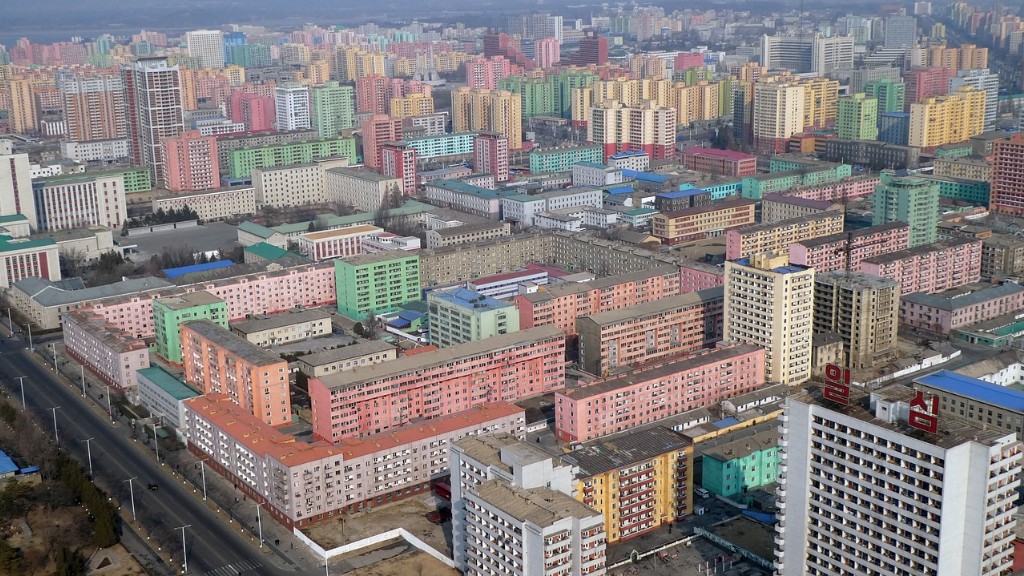Impact Of North Korea’s Limited Use Of The Internet
North Korea is one of the few countries that has limited internet use, allowing only a few of its citizens to access the internet. This restriction has had a significant impact on North Korea, impacting many aspects of the country’s economy, politics and culture.
One of the most notable consequences of North Korea’s limited access to the internet has been its lack of international connectivity. North Koreans have little to no access to global online services such as news websites, online shopping portals, social media networks and other activities that are are commonplace in most other countries. This lack of connectivity has had a negative impact on the ability of North Koreans to stay informed about global news and to access goods and services from around the world.
Furthermore, North Korea’s internet policies have created a significant economic burden for the country. North Korea’s limited access to the internet means that the country has largely been unable to take advantage of the economic benefits associated with the digital age, such as increased efficiency and productivity. For example, North Korean businesses have little access to modern technologies such as software and computer systems, which have been instrumental in helping other countries increase profitability.
Moreover, North Korea’s internet policies have stifled the country’s cultural development. North Korea’s lack of access to the internet has meant that North Koreans have been unable to engage in activities such as online gaming, streaming services and accessing foreign websites, which has prevented North Koreans from interacting with cultures outside of their own. This has contributed to North Korea typically having lower average scores in educational achievements and general knowledge compared to many other countries.
North Korea’s Internet-Related Policies
North Koreans are only allowed to access the internet through the country’s own Intranet service, called Kwangmyong. Kwangmyong has content that is heavily censored and controlled by the North Korean government. Access to the global internet is prohibited for most citizens, and it is highly monitored, making it difficult for citizens to access foreign websites or to post anything that could be interpreted as critical of the government.
Additionally, North Korean citizens cannot access the internet from their own homes and must instead use computers in government-controlled computer centres. Moreover, most North Koreans cannot afford access to the internet, with internet packages costing upwards of several hundred dollars per month. Therefore, internet access is largely limited to the wealthy elite in North Korea.
The North Korean government has also implemented a range of other policies to restrict internet access. For example, the government has carried out extensive surveillance of its citizens’ online activities, as well as having a high-level encryption system in place to prevent foreign websites from being accessed. Furthermore, the government has also employed a range of “cyber warriors” to hack into foreign websites and spread propaganda about the North Korean government.
Are There Any Examples Of North Koreans Using The Internet?
Despite the significant restrictions on internet access in North Korea, there have still been examples of North Koreans using the internet. For instance, some North Koreans have been able to access the global internet by using international SIM cards and virtual private networks. Additionally, many North Koreans have been using the internet to access foreign websites, such as online forums and news websites, though this activity is monitored and can lead to punishment.
Are There Any Countries That Have Supported North Korea’s Access To The Internet?
Despite the majority of countries opposing North Korea’s access to the internet, there have been a few exceptions. In 2018, China and Russia, two of North Korea’s closest allies, signed an agreement with the North Korean government that allowed for internet access in the country. However, the agreement was short-lived and was quickly scrapped, with both countries claiming that the agreement was “unworkable”.
International Criticism Of North Korea’s Internet Access Restrictions
North Korea’s internet access restrictions have been widely condemned by the international community. The United Nations has condemned North Korea’s policies, describing them as “a form of collective punishment against innocent citizens”. Additionally, human rights organisations such as Amnesty International and Reporters Without Borders have criticised North Korea for its oppressive internet policies, claiming that they are “in direct violation of international law and standards”.
Conclusion On North Korea’s Access To The Internet
Despite North Korea’s limited access to the internet, it nevertheless has had an impact on the country’s economy, politics and culture. North Korea’s internet policies are highly restrictive, allowing just a small number of citizens to access foreign websites. Moreover, the North Korean government has implemented numerous policies to further restrict internet access, such as extensive surveillance and high-level encryption systems. Furthermore, North Korea’s internet policies have been widely criticised by the international community. Ultimately, it seems unlikely that North Korea will be allowed unrestricted access to the internet in the near future.

